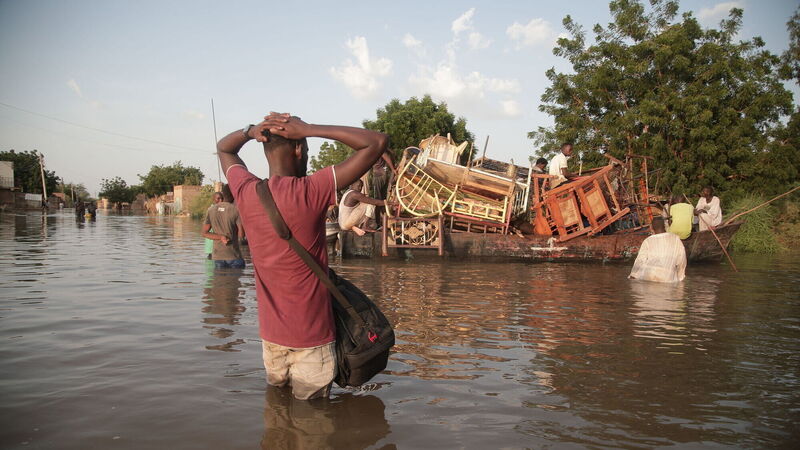Letters to the Editor: Money for bombs but none to fight starvation

People carry their belongings on a boat after their homes were destroyed by floods in Wad Ramli village, about 60km north of Khartoum, Sudan, earlier this month; millions are starving in the region.








